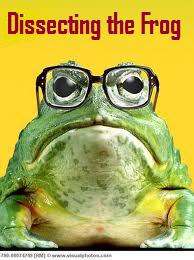The Menace of Comedy
Watching Force Majeure, I was strongly put in mind of a term which to my knowledge
has hardly ever been applied to recent work: the comedy of menace. If this term
is heard nowadays, it is usually in relation to theatrical writing in a
specific context (Britain in the late 1950s) and in particular to the early
work of Harold Pinter.[i] But it strikes me as a precise
characterisation of what Ruben Öustlund is up to in his film.
The comedy of menace is perhaps easier to recognise than to
define. Francesca Coppa notes that menace “depends on ignorance; the terror of
it stems from the vagueness of the threat. We do not know what is happening or
why, and the lack of information leads us to fear the worst”. In contrast, black
comedy “treats serious themes comedically, without the respect they deserve; it
says too much, it says what should not be said”.[ii]
That is, it makes it too clear what is really going on.
To this point, I would add that a sense of menace requires
not just that characters be under threat, but that the audience empathises with
them enough to feel a kind of vulnerability themselves. The effect is very
different to seeing a comedy where you know something bad is going to happen to
one of the characters, but you feel no empathy with them:
Tomas and Ebba (Johannes Kuhnke & Lisa Loven Kongsli)
are taking a holiday with their children in a ski resort. In the face of an
unexpectedly violent avalanche, Tomas abandons his wife and children to their
fate. The avalanche turns out to be harmless, but Ebba cannot get over this
betrayal. The incident and the themes it raises are discussed in three scenes –
a dinner with a couple they met at the resort, a dinner with their old friends
Fanni and Mats, and a scene between Mats and Fanni – which are masterpieces of
tension and awkward comedy.
Awkward or cringe comedy, where the humour is rooted
in the social embarrassment felt by the characters, has been a staple of
television in particular for years. Where Force Majeure develops the form is in
the length of these three scenes, and the naturalistic presentation of the
characters before and during them. Larry David and David Brent are well-rounded
characters, but we are never in doubt that they are comically deluded about
themselves. Neither Tomas nor Ebba are presented as comic prior to the incident
with the avalanche – indeed, the first fifteen or twenty minutes of the film
could easily pass as a finely-observed drama of bourgeois life. The comedy is
introduced slowly and inexorably, with far less plot machinery and a much more
drawn-out (in a good way) pay-off than is typical of sitcoms specialising in cringe
comedy.
One difference between the comedy of early Pinter and that
found in Force Majeure is that the
menace in the latter is not that vague. We have a pretty good idea of what’s
happening and what will happen, in outline at least – indeed, it is so
excruciating precisely because of this. That said, there is still menace afoot,
in that we certainly fear the worst, even as it is unfolding before our eyes.
This is perhaps the novel element which cringe comedy introduces to the comedy
of menace: the sense of vulnerability we feel is heightened not the by the
vagueness of the threat, but by its gruesome familiarity.

